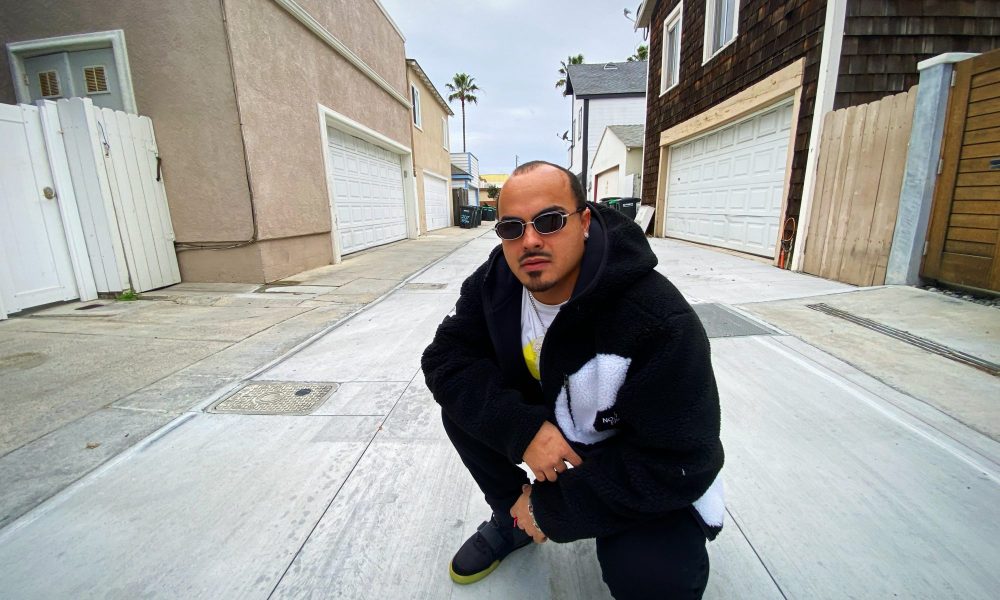

Today we’d like to introduce you to Brayden Massie.
Hi Brayden, thanks for sharing your story with us. To start, maybe you can tell our readers some of your backstory.
Music has always been a big part of my life. I’ll never forget when my dad burned me my first CD when I was about 5 or 6 years old. I remember it had “In The End” by Linkin Park on it and hearing that song was the first moment in my life that I can remember the massive amount of joy I had while listening to music. My father was a bass player, so burning CDs was the way he chose to share his favorite music with my brother and me. About a year after that, my brother began playing guitar. I remember picking up his guitar one day and feeling like there was no way I’d be able to play it, and I eventually asked my dad to get me an instrument of my own that I could play so that I could be cool like my brother. My dad ended up getting me a drum kit for Christmas when I was 8 years old and drum lessons along with it. Little did I know that a Christmas present would eventually lead to a 10-year musical journey that embedded the love of music into my soul. Throughout those 10 years of playing, I had one teacher for a vast majority of them who left one of the deepest, most positive imprints on my life. Honestly, he is probably the number one reason music became such a cornerstone in my life. My passion for music started to form during those years, and I’d be lying if I said that little Brayden didn’t want to be a professional drummer at some point. Playing drums taught me so much about myself, but it ultimately taught me what I wanted from music creatively. Growing up, I had been in a couple of bands, and one thing I learned from those experiences was that relying on others for commitment and sacrifice can be really tough, especially at a young age. Once I made the decision that things like football and track were more important in my life, playing drums and creatively involving myself in music started to fade away, but I still kept listening.
Towards the end of high school, when I stopped playing drums, I started listening to a lot more dance music because of my friends. I was enthralled by artists like the Donkey Rollers, DJ Hixxy, Headhunterz, and everything involving hardstyle. I later discovered Kaskade and Deadmau5 which led to its own rabbit hole of music discovery. I then started gloving and just really dove into the rave scene. Back then, raves definitely had a different reputation than they do today, so going to raves wasn’t something I really shared with anyone outside of the immediate friend group that I went to them with. I was a pretty rebellious kid, so sneaking out and doing stuff I wasn’t supposed to be doing was always fun for me, but the rave scene back then also felt like a community I connected with. I think I ended up going to like maybe 4 or 5 raves when I was in high school between sophomore and senior year, and I just fell in love with everything that involved electronic music.
Once I graduated high school and went off to college, I pretty much left the drum kit behind too, but music was still something I indulged in. Now that I was on my own in Washington D.C., experiencing shows and discovering new music felt like my number one priority even though I went to college to play football and get an education. DC brought all kinds of dance music to the city, and I feel like that’s where my dance music taste began to form. I feel like I listened to music non-stop back then. I either had earbuds in or I was just bumping a mini-speaker in my backpack as I rode around campus on my skateboard. During those times in my life, all I did was discover electronic music I had never heard, and through that, I discovered DJ’ing. One thing I liked about being able to DJ was that you didn’t need a band, you just needed turntables and some sort and speaker. This led me to buying my first Hercules DJ mixer for like 80 bucks or something. It wasn’t anything crazy, but it just led me down this path of musical expression that I felt filled the void that I had created by leaving behind the drum kit. It was refreshing, it was fun, and I ended up DJ’ing a couple of parties throughout college. DJ’ing kept me involved with dance music discovery because I was always looking for music to play that matched the current genre I was really into. It even depends on my love for hip-hop because of DJs like Funkmaster Flex and DJ Jazzy Jeff. DJ’ing to me was just amazing, and watching people rip the decks was something I thought was so cool. It was like playing an instrument, so naturally the creative performance was the part I liked the most. My music taste jumped all over the place during these times. At one point it was a trap, then it was future bass, which turned into riddim, and then I ultimately stumbled into house and techno. After going to Ultra in Miami a couple of times during college, I started to really sink into house and techno music. I just fell in love with the groove. There’s just nothing quite like that groove you get from house and techno tracks, and I couldn’t get it enough of it. I started to deep dive into techno music specifically and found a genre I felt spoke to my soul.
Once I graduated college, I traveled to Europe for 3 months with one of my best friends. While traveling, I did a lot of thinking about what I wanted to do in my life. There was a part of me that wanted to take DJ’ing to another level by creating music, but I didn’t want to feel like I was throwing away my education I had spent so much time on. Plus, the music industry was the Wild West and I knew absolutely nothing about it. Still, all I wanted to do was create and give it a chance if I could because my focus wasn’t so much on the industry as much as it was on creating music and playing it. With these thoughts heavy on my mind, at one point during our trip, I kind of had an epiphany. It was while I was watching Eric Prydz rip up Hï Ibiza in Spain. It was weird, but there was a moment where I just had this feeling like I should give producing a shot, and I sold myself on the idea. I knew my parents wouldn’t go for “Hey, I’m going to start making music now”, so I came up with a plan. I saw a friend of mine post about him enrolling at Icon Collective in LA while I was still in Europe. It sparked the idea in my mind that if I wanted to give this thing a shot, I needed to get a teacher. I came up with a plan, and when I got back to the US, I moved to San Diego and created as many beats as I could so that I could apply to Icon’s online school. I had heard of a program called FL Studio from a friend of mine back in high school, so I downloaded it, watched a bunch of YouTube, and created as much as I could. A lot of the initial things I made were just simple beats, but my goal was honestly just creating something that would get me accepted to Icon. By the grace of the gods I was accepted, and I started online in November of 2017. At this point in time, I was studying for the GRE because I still hadn’t fully committed myself to music, even though I was in school for it. I felt like I needed to prove something to myself before I could believe that there was a chance I could actually be a music producer. As school chugged along, I had a friend reach out to me who was interested in Icon, and since I was attending, he wanted to see what producing was all about. He lived in Orange County but would drive to San Diego just to hang out and talk about producing. He eventually made the dive and decided he was going to go to Icon as well, but his plan was to go to Icon on campus. Him making the move to going to school on campus made me really want to go with him, but the problem was that I lived in San Diego. He told me he was going to do their night courses, which at the time went from 10pm-2am. I was planning on moving back to Orange County when my lease ended in San Diego, but the problem was that he wanted to start during their summer period, and my lease wasn’t over until the fall. I decided to say screw it, took out all of my savings, and I signed up for the night class with him which started in the summer. With that decision, I also committed to driving from San Diego to LA 3 times a week for class for the first quarter. I think once I made those monumental decisions, there was a spark inside me that I think drove me to really dive into music production. I felt like I proved to myself I at least had a passion for creating music, but I wasn’t sure if I was actually good at it. Throughout Icon, I was molded into a producer that became confident in his craft, and I felt like I was doing something I was meant to be doing. I wouldn’t be where I am today without my teachers and peers from Icon, and attending there when I did was a true blessing.
Once I graduated from Icon, I got together with a group of friends who I used to rave with in high school/college and started throwing house and techno parties with them in Orange County. Icon taught me all about building a brand/platform and I felt like these parties were the first step at doing that. I knew I wanted to create a label of some sort, but I didn’t know how, or who, I was going to do that with. After a few successful parties, we talked about branding and came up with the name SOL. We used the name to brand our events, and eventually I talked to the boys about making our brand a legit company. The four of us decided that it was the route we wanted to go and we became SOL Records LLC in 2019. Once we became a record label, our focus became throwing unique and eclectic parties while also releasing quality houses and techno. I released an EP and a couple of singles on the label and the label had locked down residencies at Mesa Lounge and Legacy Nightclub in Orange County. It felt like the label was getting some movement in the scene and my music was coming alongside of it. At one point during all of it, I decided I wanted to pursue a Master’s degree in music production. I saw an ad from Berklee about their master’s program in music production and saw it as an opportunity to deepen my production knowledge while also achieving an accolade I’ve always wanted to achieve, which was to get a graduate degree. Another big reason I made this decision was because I still felt like I had so much to learn, and this was an opportunity to learn more about producing from all angles, not just dance music. I started that program right when Covid hit, so life was on pause anyway for the most part, so it kind of felt like perfect timing for me to go after my degree. Live shows halted for the label and everyone was stuck inside, so I felt grateful that I had something to keep me sane through those times. Once I graduated, I focused heavily on producing and trying to create projects that I felt could compete commercially. Live music was still on a pause, so I pretty much just sat in the studio and created whenever I could. At the label, we focused heavily on supporting artists that we not only believed in but also artists we felt represented our brand and vision. We didn’t want to be any regular event company or label, we wanted to create a community that stood on the backs of high-quality artists and music. The music and the human behind its creation was, and always will be, our main focus at the label.
Once live shows started back up again, we took a bit of a different approach at the label since it felt like the whole industry hit a big reset button. A lot of our business relationships no longer had careers in music because of the pandemic, so we had to get creative, which led us into the renegade party scene. We started throwing parties in places where we felt like we could have full creative control, and the desert was a place that we found that allowed us to do just that. This also shifted our focus to not only prioritize artists and their music but to also prioritize creating an intimate community. We started with a small desert show that eventually led to us throwing a party under and underpass in San Diego. In between all of this, we still had a couple of shows here and there at local clubs, but our renegade parties are the ones that I feel helped us to start defining who we are as a label, and also who I am as an artist. During this time, I felt like I was honing in on my sound, where I wanted to go with it, and how I wanted to present it. Fast forward a year and we just threw one of our biggest parties to date with 3 days of nonstop music featuring artists like Caravel, TDJ, Lindsey Herbert, and Cassie Raptor. We also showcased some of the hottest talent coming up in the dance music industry right now. To say that it was one of the biggest milestones in my career would be an understatement, and I am so crazy grateful to everyone who was involved with that party in any way. Without the label, I wouldn’t have met some of the most amazing people in my life, and I definitely wouldn’t be where I am today without those people or experiences. Even though schooling gave me wings, jumping into the industry with 3 close homies and a dream of starting a record label has given me an opportunity to fly. I feel incredibly blessed to be where I am at today, and I can’t wait to see where my music and SOL continue to take me.
Alright, so let’s dig a little deeper into the story – has it been an easy path overall and if not, what were the challenges you’ve had to overcome?
I would say at first the road felt pretty smooth, but once the pandemic hit, everything changed. I felt like I had lost my platform and any momentum I had along with it. So I would say starting over after the pandemic was definitely one of my biggest obstacles, just like most people I’m sure.
Another challenge I feel like I deal with every day is running a label while pursuing my own artist brand. It’s tough trying to run a company alongside creating music. While we were planning our big desert show, it was the only thing I was focusing on. Even then, the party itself was a massive challenge. Flying in international artists, planning a massive production in the middle of nowhere, coming up with the funds for the party, and doing it all with about 4 people proved to be the biggest challenge I have ever faced so far in my music career. Thus, learning to balance the label work with my own music and artist brand is something I have been trying to improve on every day. There are times that I beat myself up over not releasing music more because I have so much of it. There is a massive mental battle I have pretty regularly over my own music because I am so meticulous, but practicing self-love and being patient with myself has allowed me to push through some of that. I still fall down all of the time, but I’m blessed to have people around me that believe in me, and I think I find a lot of my motivation and support from those people.
Thanks – so what else should our readers know about SOL Records?
At SOL we specialize in the presentation and distribution of house and techno music. We also throw eclectic parties that aim towards creating intimate settings paired with high-quality music. I personally am one of the owners of the label and President. I handle all of our logistics, legal stuff, finances, web design, A&R work, and pretty much any administrative duty outside of social media/venue outreach. I also release my own music on the label.
I think what we are most known for right now is probably our parties. We release some amazing music, in my opinion, but I think our parties are what make us currently stand out. We try to focus on curating lineups that tell a story by allowing the artists to showcase themselves fully. That means longer sets, underground talent, unique settings, and pumping sound systems. We have even started an “All Night Long” style series in Costa Mesa that allows artists to take over for an entire night, giving them a 5-hour set time. We are pairing that with stickers on phones, hoping to create a fully subversive musical experience. We just really want people to focus on the music and one another, and we are hoping to make our own wave from doing so.
I think what sets us apart from other brands throwing parties right now is that we do our best at providing a platform specifically to producers. By this I mean we tend to aim less at DJs and more at people pushing their own music. We have definitely had DJs perform for us in the past, but our main goal is to really promote and push artists and their music.
I think what I am most proud of when it comes to SOL is the community we have created. The producer community we have created is something I never thought it would be, and I feel blessed to know every producer that has worked with us. The fan community that backs us is something I am also incredibly proud of. We have had this vision to surround ourselves with good people and good music, and I can say that as of now, we are doing just that.
I’d say our main goal with the label is to represent unique and greatly talented artists and human beings. I say human beings because we want to support artists who not only make great house/techno music but who are also good people. Good people and good music are things we live by at SOL, and we feel that keeping those two things as our main focus will propel us further into creating a music community that is driven by those exact things.
We’re always looking for the lessons that can be learned in any situation, including tragic ones like the Covid-19 crisis. Are there any lessons you’ve learned that you can share?
I think one of the most important lessons I learned during COVID was never give up. It sounds cliche, but if you can’t do something, redirect that energy into a place that is still productive and hopefully in turn, it propels you in a direction that is positive. I got lucky that I had something like school to take up my time during COVID, but even then, our label kind of crashed and burned for a bit. But once the live music stopped, I just took a step back and told myself that as long as I can continue too confidently create, I will have a place in the music industry. So I just redirected all of my energy into creating, mixing, and mastering. I tried to hone my skills that would allow me to stand out because of what I release, not because of where I play. I truly believe that if you can consistently create good music, everything else will fall into line. COVID definitely put that into perspective for me and helped it become my main focus.
Pricing:
- Mastering Services: $50 a song
Contact Info:
- Website: www.moveforsol.com
- Instagram: https://www.instagram.com/mass_e_music/
- Facebook: https://www.facebook.com/mass.e.musicc/
- Twitter: https://twitter.com/mass_e_music
- SoundCloud: https://soundcloud.com/mass_e_music
- Other: https://open.spotify.com/artist/1nSLeMNnzIEHbEk1zsHHYv?si=rNOnOP0iSK2PBY7mtEaA3A

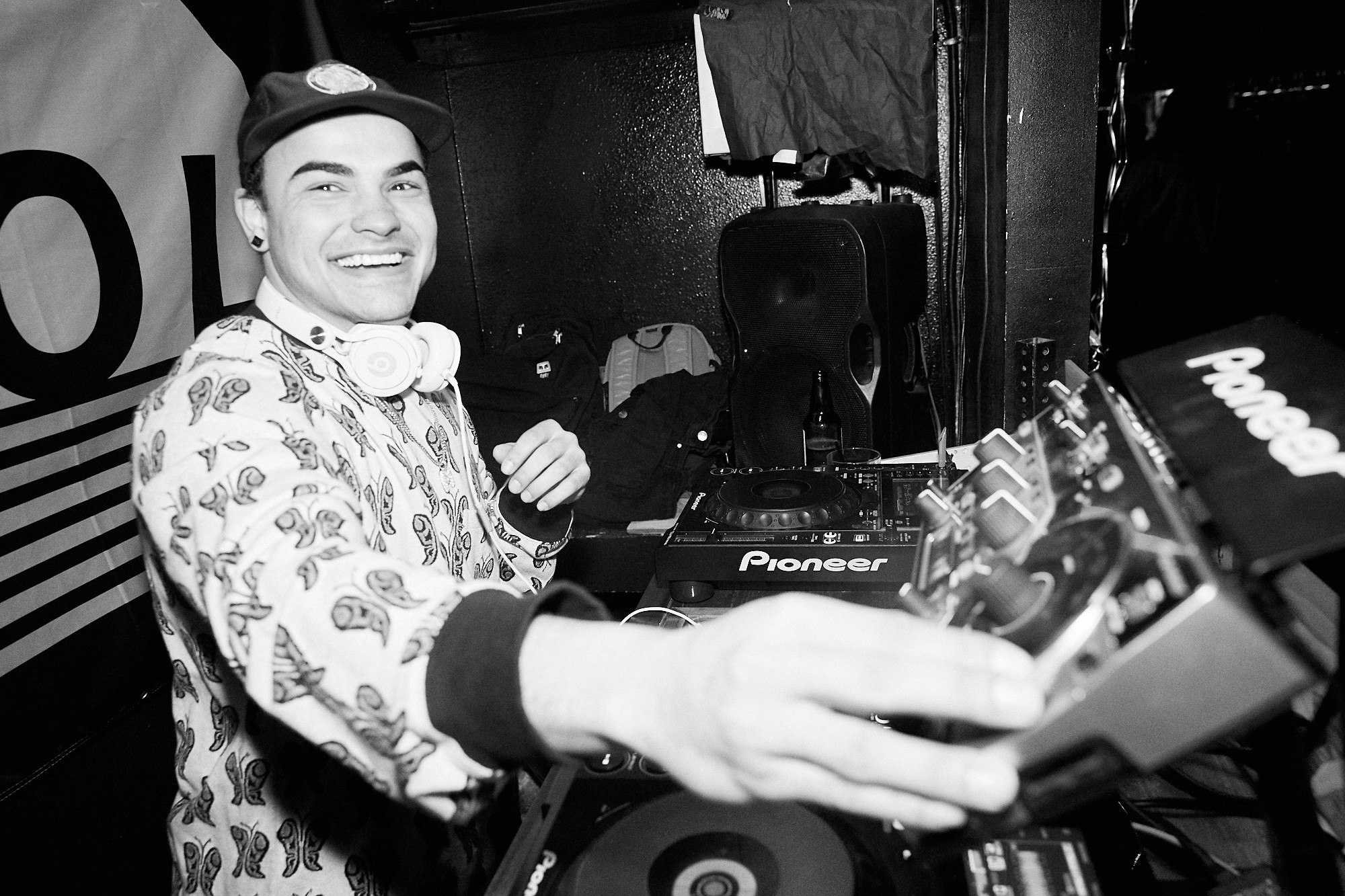
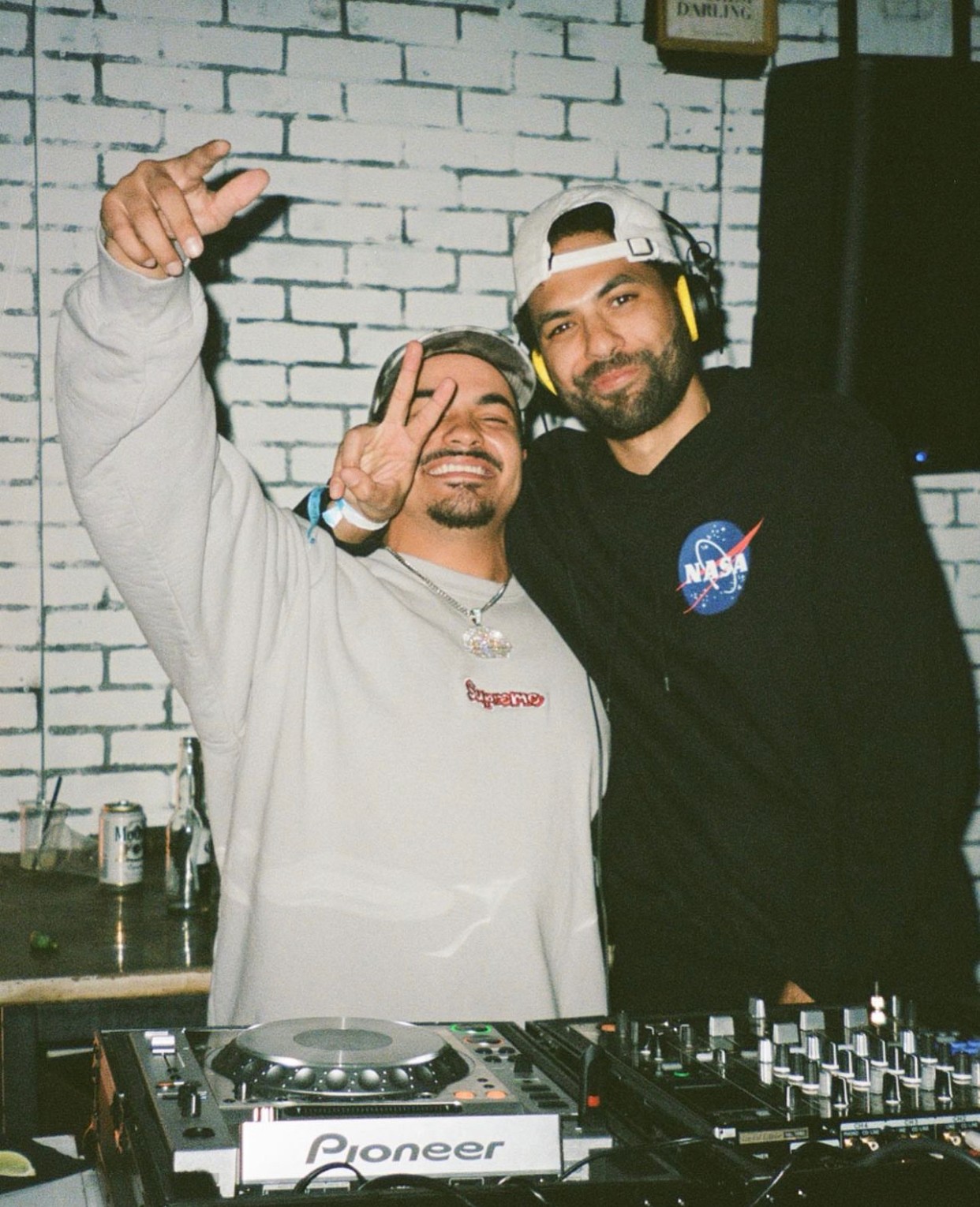

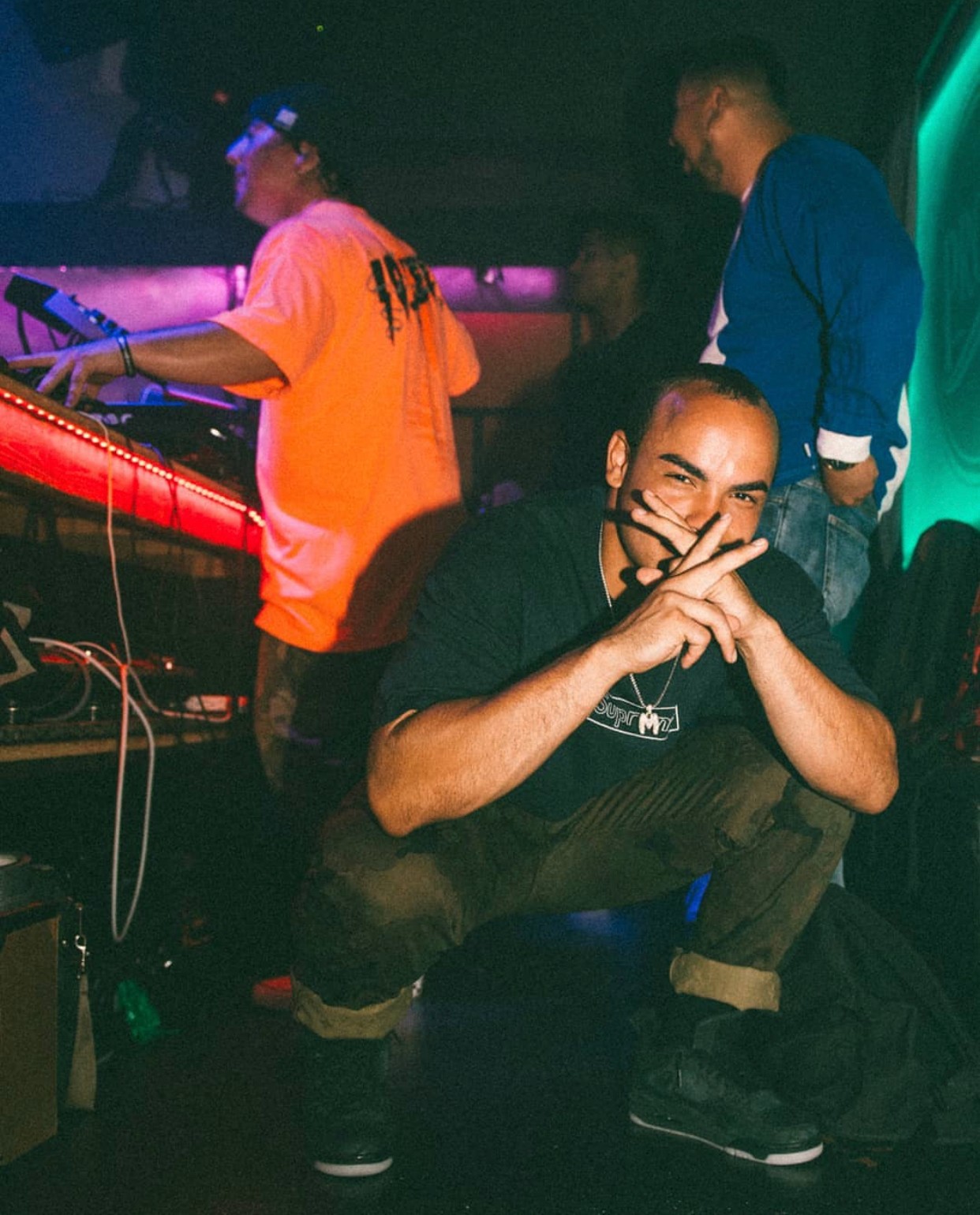

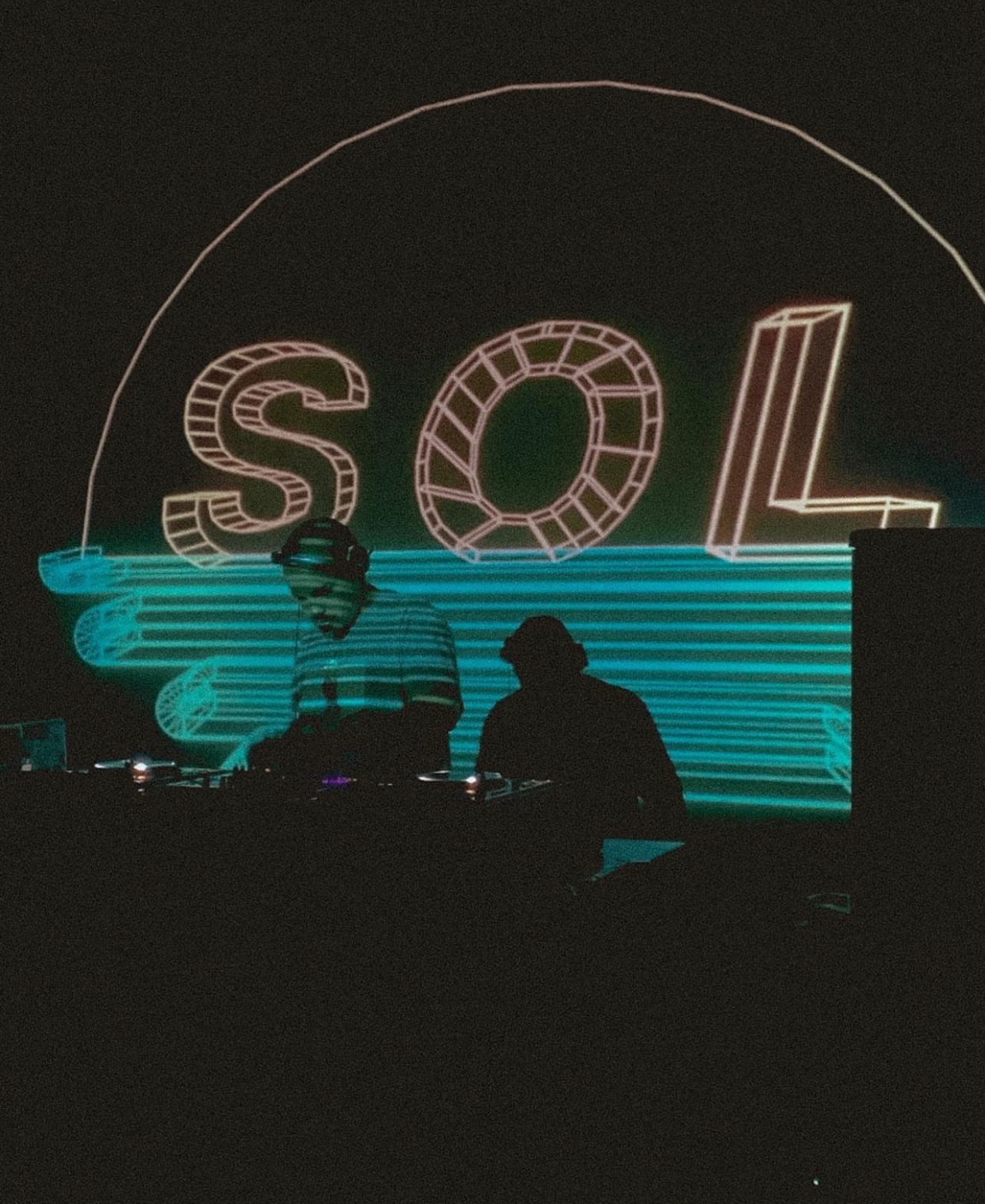
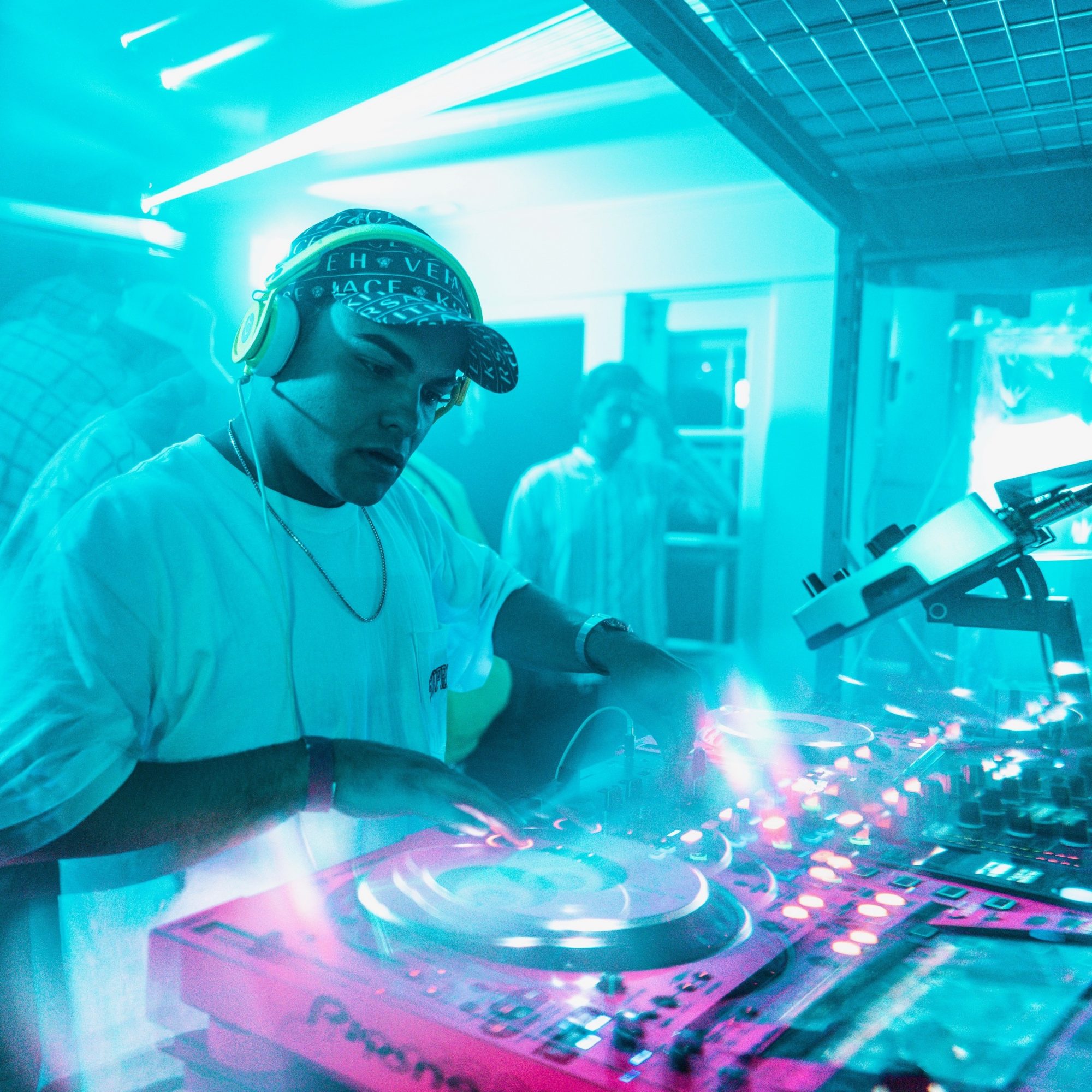 Image Credits
Image Credits
Adam Kargenian Daniel Meza Andrew Noriega Troy Poole











